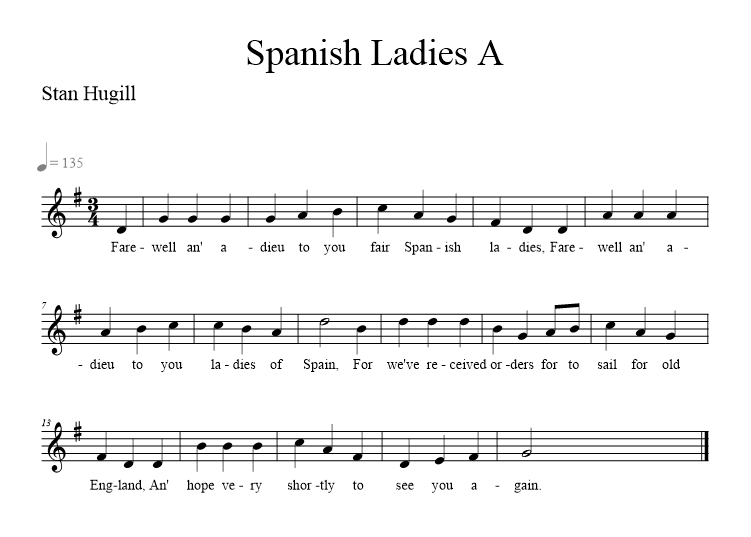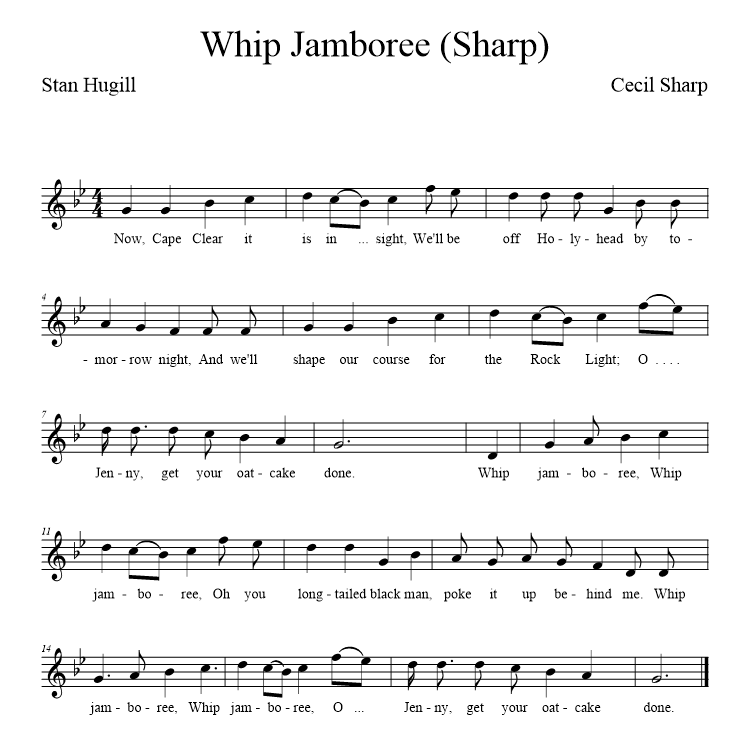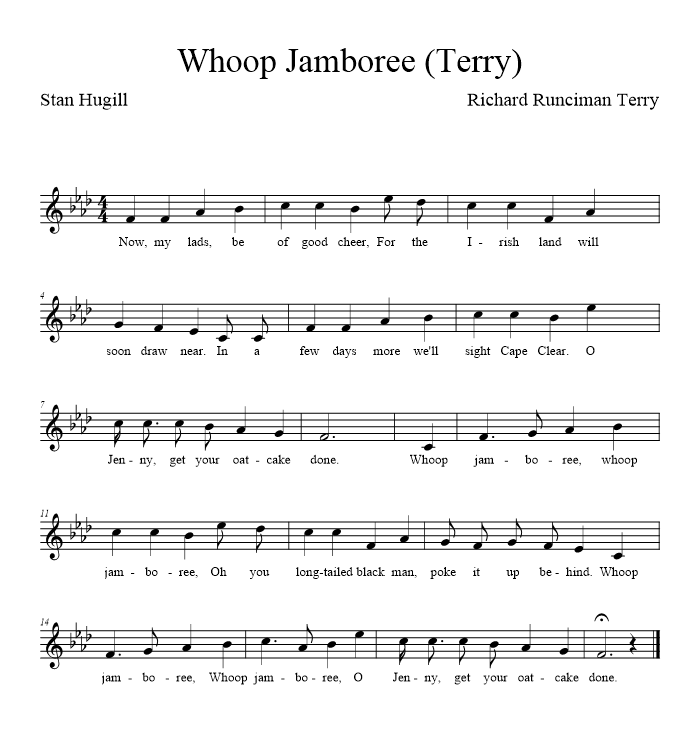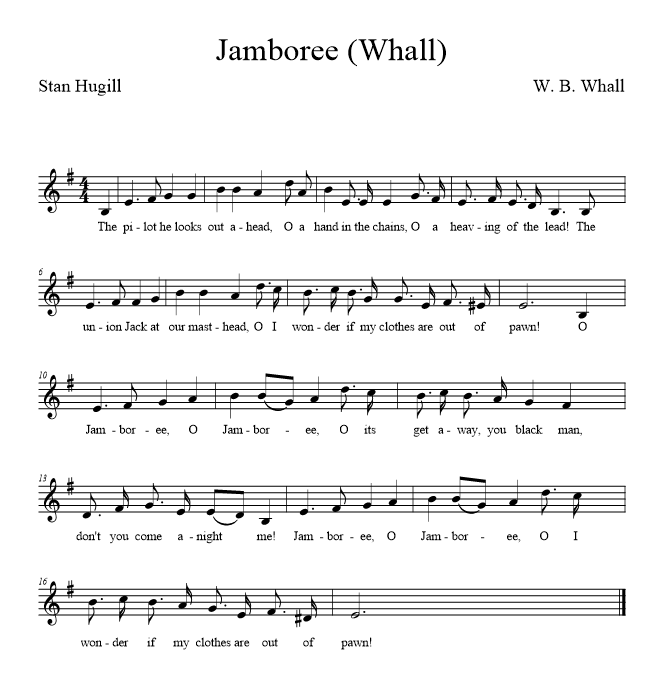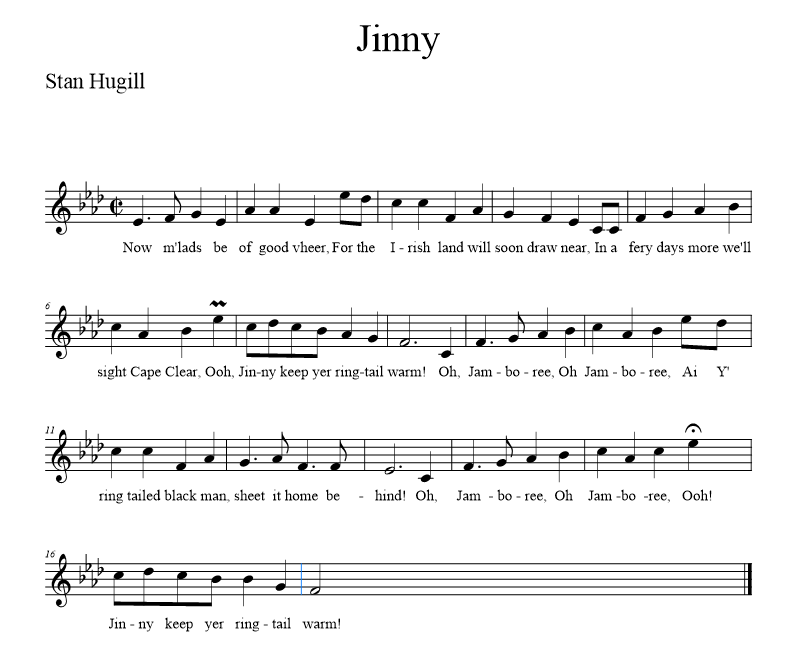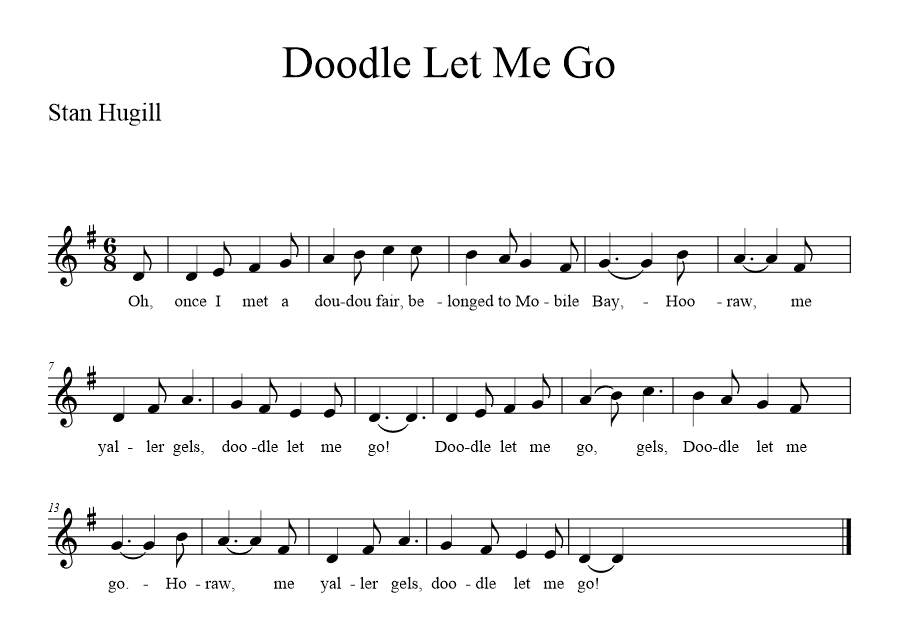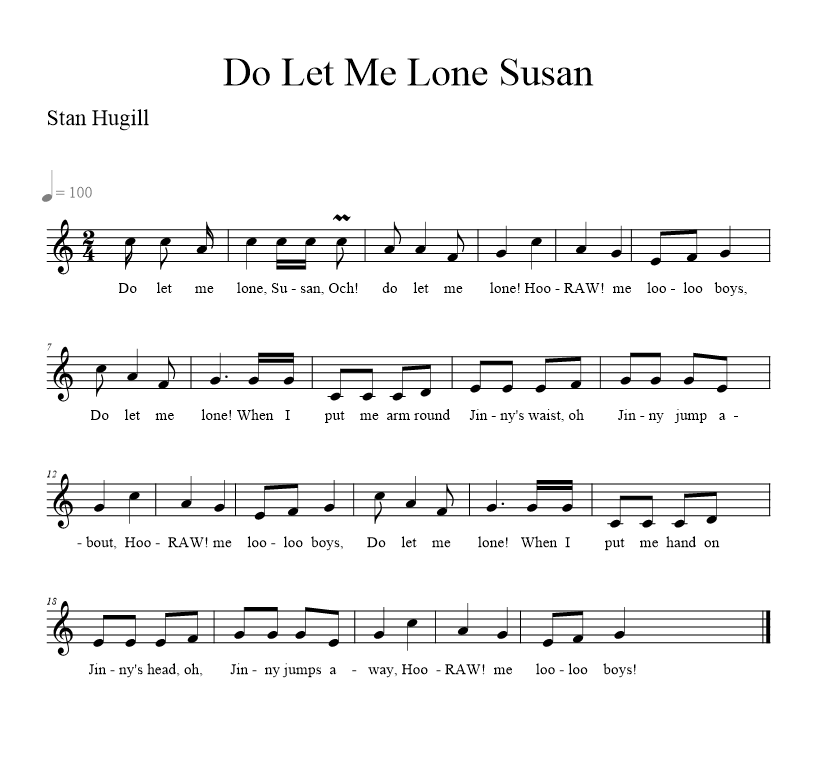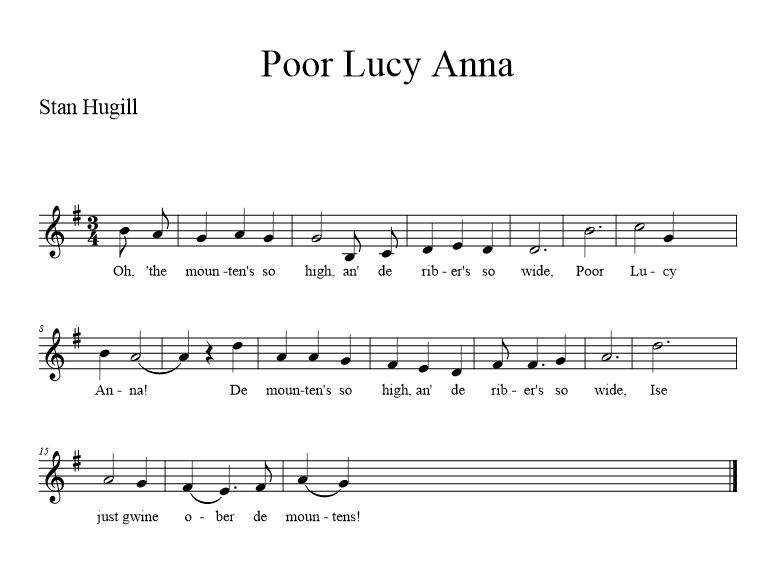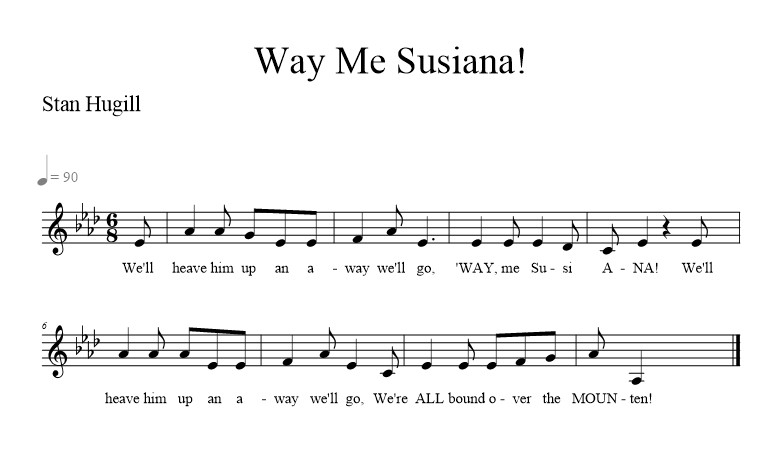Interesting Facts about the Spanish Ladies B
“Spanish Ladies B” old naval song, only Stan Hugill and Captain Frank Shaw were writers who call this beautiful song the shanty. Hugill tells us it was the homeward-bound song sung at the capstan. This song has two tunes – the livelier and faster one being preferred by the later generation of sailing-ship men. Both versions including this one, Stan Hugill took from his father.
The song will be reconstructed by myself as the capstan shanty.
The source of this sea shanty
The music: “Shanties from the Seven Seas” by Stan Hugill (1st ed: p 386).
The lyrics: “Shanties from the Seven Seas” by Stan Hugill (1st ed: p 386).
The Record of the Spanish Ladies B
You also can find this record on my YouTube channel here or directly listen below. Additionally, if you want to share your opinion about the record or share your opinion you can do it in my Facebook forum here, or leave a comment at the bottom of this blog article.
The musical notation

And the full lyrics
Spanish Ladies B
Farewell an’ adieu to you fair Spanish ladies,
Farewell an’ adieu to you ladies of Spain,
For we’ve received orders for to sail for old England,
An’ hope very shortly to see you again.
– We’ll rant an’ we’ll roar, like true British sailors,
– We’ll rant an’ we’ll rave across the salt seas,
– Till we strike soundings in the Channel of Old England,
– From Ushant to Scilly is thirty-four leagues.
* 2 *
We hove our ship to, with the wind at sou’west, boys,
We hove our ship to for to take soundings clear.
In fifty-five fathoms with a fine sandy bottom,
We filled our maintops’l, up Channel did steer.
* 3 *
The first land we made was a point called the Deadman,
Next Ramshead off Plymouth, Start, Portland, and Wight.
We sailed then by Beachie, by Fairlee and Dover,
Then bore straight away for the South Foreland Light.
* 4 *
Now the signal was made for the Grand Fleet to anchor,
We clewed up our tops’ls, stuck out tacks and sheets.
We stood by our stoppers, we brailed in our spankers,
And anchored ahead of the noblest of fleets.
* 5 *
Let every man here drink up his full bumper,
Let every man here drink up his full bowl,
And let us be jolly and drown melancholy,
Drink a health to each jovial an’ true-hearted soul.

